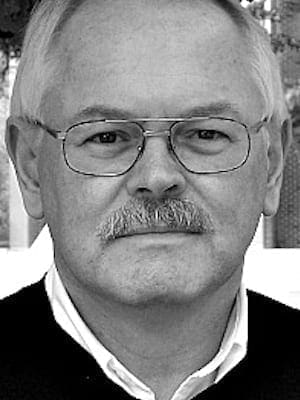I was very blessed during my theological formation to have had the privilege of taking classes from two very renowned Catholic scholars, Avery Dulles and Raymond E. Brown.
The former was an ecclesiologist whose books often became textbooks, which were prescribed reading in seminaries and theology schools.
The latter was a Scripture scholar whose scholarship stands out, almost singularly, still nearly 30 years after his death.
Nobody questions the scholarship, the personal integrity or the faith commitment of these men.
They were in different theological disciplines but what they shared, beyond the high respect of scholars and church persons everywhere, was a passion for ecumenism and a capacity to form deep friendships and invite warm dialogue across every kind of denominational and interreligious line.
Their books are studied not just in Roman Catholic circles, but in theological schools and seminaries in Protestant, evangelical, Mormon and Jewish seminaries as well.
Both were deeply respected for their openness, friendship and graciousness toward those who held religious views different than their own.
Indeed, Brown spent his most productive years teaching at Union Theological Seminary in New York, even as he, a Sulpician priest, more than anything else cherished his Roman Catholic identity and priesthood.
After losing his own father and mother, he spoke of the Roman Catholic Church and his Sulpician community as “the family that still remains for me.”
And what these two shared in their vision for ecumenism was this: The path toward Christian unity, the road that will eventually bring all sincere Christians together into one community, around one altar, is not the way of somehow winning the other over to our own particular denomination, of getting others to admit that they are wrong and that we are right and of them returning to the true flock, namely, our particular denomination.
In their view, that’s not the route forward, practically or theologically. The path forward needs to be, as Dulles puts it, the path of “progressive convergence.”
What is this path?
It begins with the honest admission by each of us that none of us, no one denomination, has the full truth, incarnates the full expression of church and is fully faithful to the gospel.
We are all deficient in some ways and each of us in some ways is selective in terms of which parts of the Gospels we value and incarnate and which parts we ignore.
And so, the path forward is the path of conversion, personal and ecclesial, of admitting our selectiveness, of recognizing and valuing what other churches have incarnated, of reading Scripture more deeply in search of what we have ignored and absented ourselves from, and of individually and collectively trying to live lives that are truer to Jesus Christ.
By doing this, by each of us and each church living the gospel more fully, we will “progressively converge,” that is, as we grow closer to Christ, we will grow closer to each other and thus “progressively converge” around Christ and, as we do that, we will eventually find ourselves around one common altar and will see each other as part of the same community.
The path to unity then lies not in converting each other over, but in each of us living the gospel more faithfully so as to grow closer to each other in Christ.
This doesn’t mean that we do not take our divisions seriously, that we simplistically assert that all denominations are equal, or that we justify our divisions today by pointing to divisions that already existed in the New Testament churches.
Rather, we must all begin by each of us admitting that we do not possess the full truth and that we are in fact far from being fully faithful.
Given that starting point, Brown then gives this challenge to all the churches: “Recognition of the range of New Testament ecclesiological diversity makes the claim of any church to be absolutely faithful to the Scriptures much more complex. We are faithful but in our own specific way; and both ecumenics and biblical studies should make us aware that there are other ways of being faithful to which we do not do justice.
“In short, a frank study of the New Testament ecclesiologies should convince every Christian community that it is neglecting part of the New Testament witness,” he continues. “I contend that in a divided Christianity, instead of reading the Bible to assure ourselves that we are right, we would do better to read it to discover where we have not been listening.
“As we Christians of different churches try to give hearing to the previously muffled voices, our views of the church will grow larger; and we will come closer to sharing common views. Then the Bible will be doing for us what Jesus did in his time, namely, convincing those who have ears to hear that all is not right, for God is asking of them more than they thought.”
Indeed, God is asking more of us than we think.
Editor’s note: A version of this article first appeared on Rolheiser’s website. It is used with permission.
A Missionary Oblate priest who serves as President Emeritus of the Oblate School of Theology in San Antonio.


